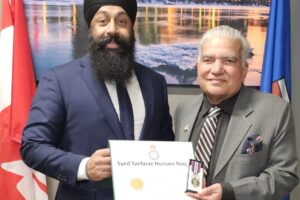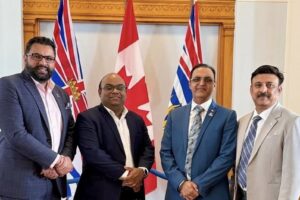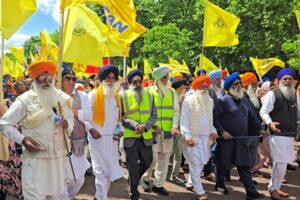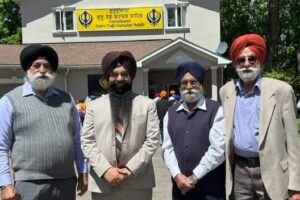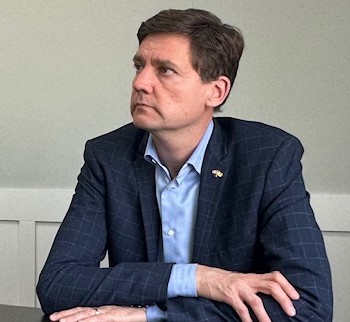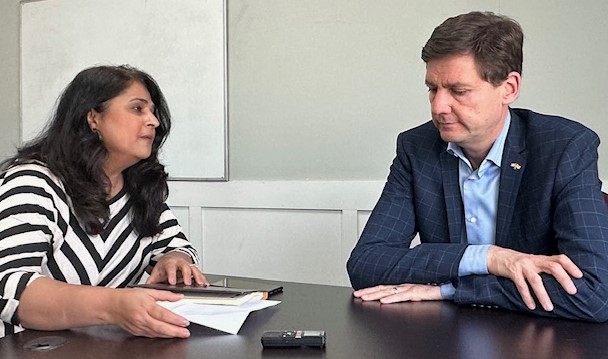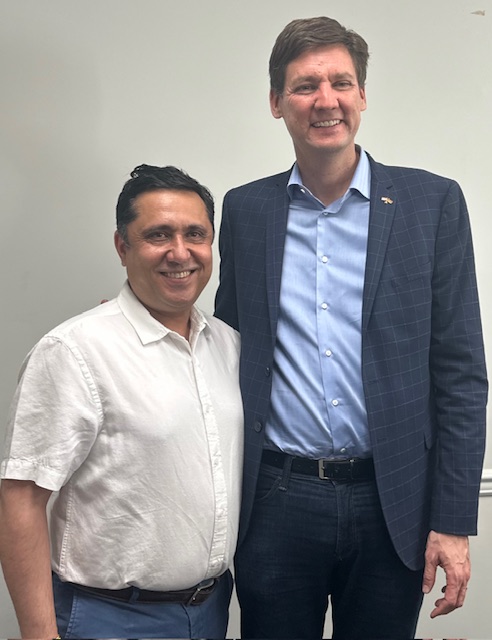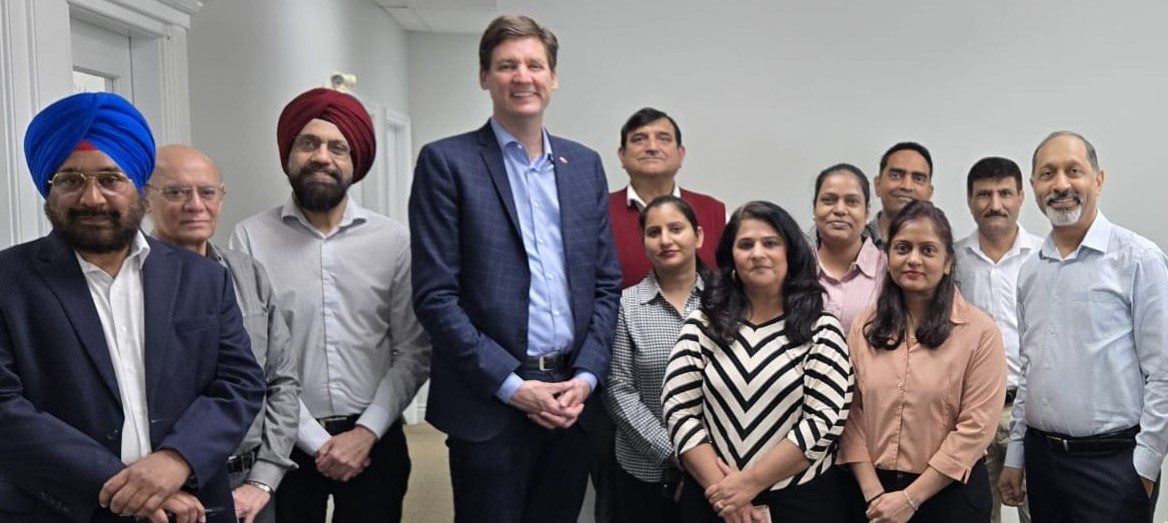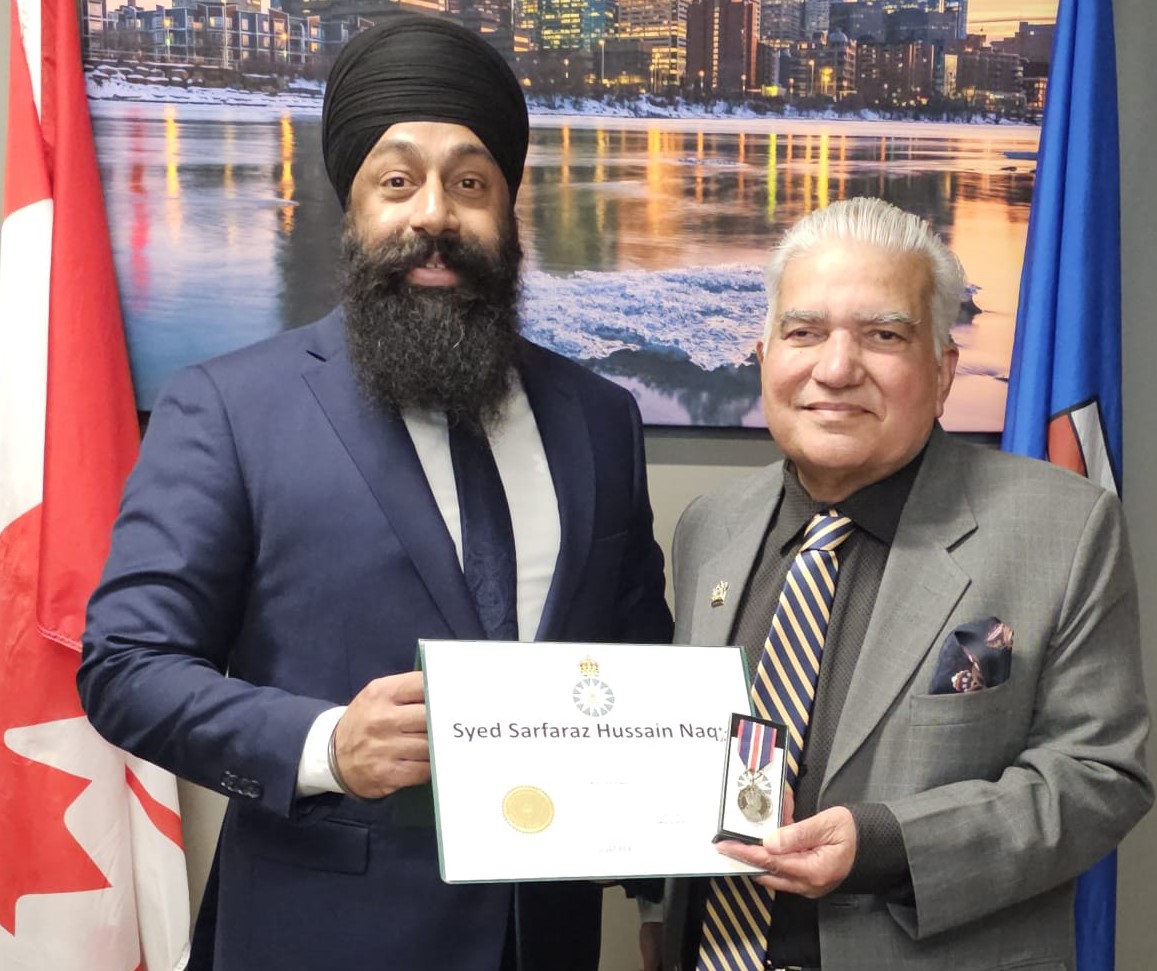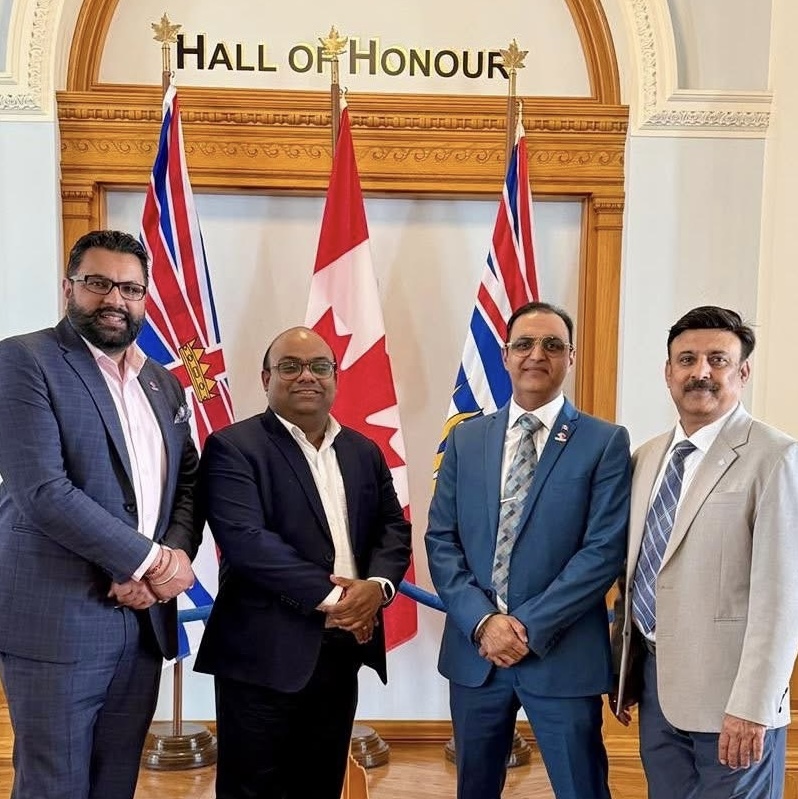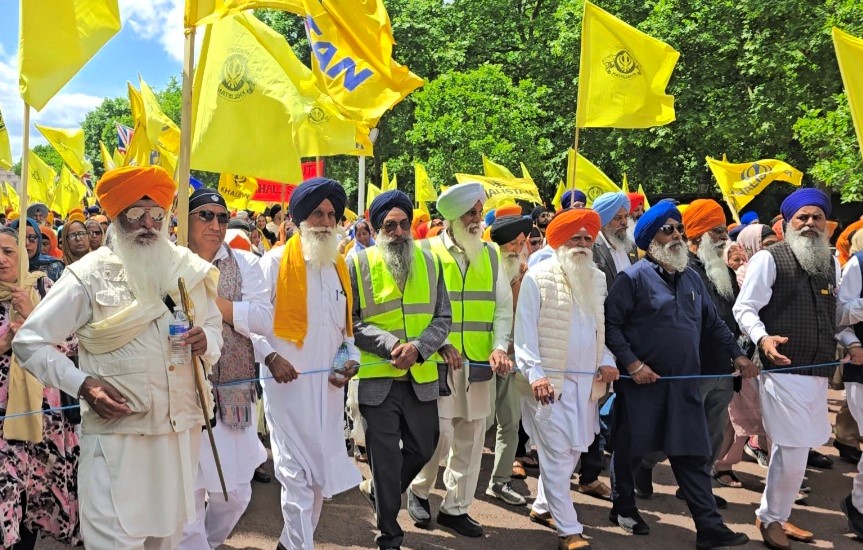By Surbhi Gogia-
Premier David Eby may cut a tall figure, but it’s his enduring connection with British Columbia’s South Asian community that truly stands head and shoulders above the rest.
On a recent visit to The Link newspaper’s office in Surrey, Premier Eby set aside political formality to have a heartfelt conversation, sipping on Indian chai and samosas. During his visit, which was part of his broader media outreach in Surrey, the Premier took the time to learn about the newspaper’s historical legacy and grassroots origins. The staff briefed him on The Link‘s early days, printing and distribution.
In the interview, Eby addressed key issues facing British Columbians—especially those living south of the Fraser River—touching on immigration, healthcare, education, economic resilience, and Canada’s often testy trade ties with the United States.
Immigration
Premier David Eby deeply appreciates the vital role immigrants play in enriching British Columbia’s economy and cultural fabric. As he put it, immigration is not just about numbers—it’s about people, prosperity, and planning. That’s why he raised concerns about the extreme swings in federal immigration policies in recent years, introduced by the previous government.
When asked about the dramatic pendulum swings in federal immigration policy—first opening the floodgates and now pulling up the drawbridge—Eby didn’t mince words. He said, “I am worried. We went from one extreme to another. Over two years, British Columbia saw a massive influx—around 300,000 new arrivals. Our housing, roads, and schools, especially in the South of the Fraser, simply couldn’t keep up. But now the tap has been turned off almost completely. That, too, has serious consequences. It’s affecting our healthcare system, our economic momentum, and our ability to attract the professionals we need to keep BC thriving.”
He emphasized the need for a balanced approach—one that aligns immigration levels with the province’s ability to support newcomers through housing, education, and language training. “We want to ensure people who come to BC can succeed,” he said. “We need nurses, engineers, early childhood educators, and tradespeople.”
Premier Eby revealed that his government has formally asked Ottawa for greater flexibility and more space in provincial immigration programs. “We understand our needs better than anyone in Ottawa can.”
On the issue of international students, many of whom have borne the brunt of recent policy changes—Eby expressed frustration. “Some of these federal decisions were reactions to issues in Ontario, but they’ve hit us hard here in BC,” he said. “International education is one of our major exports. It brings jobs, fuels growth in our post-secondary institutions, and forges lasting global ties.”
He noted that British Columbia has taken proactive steps to manage international student enrollment responsibly: “We’ve introduced regulations, and we’re investing in student housing so they don’t drive up pressure on the broader housing market.”
When run well, Eby said, international education is a “massive asset.” But recent disruptions have dented Canada’s global reputation. “I’m hopeful that with fresh leadership in Ottawa, we can restore our standing on the world stage.”
When asked whether Western Canada, particularly B.C., feels left out of federal planning, he said, “The idea of separation is complete nonsense.” But he admitted that B.C.’s geographic distance from Ottawa often translates into real disparities. “My message to the new Federal Government is to give us access to same programs that are available to provinces like Quebec and Ontario. Programs involving millions—for immigration, for example—have bypassed us.” He also gave the example of Ontario getting a hospital in the North built with federal government funding. “We never had any hospital built by the federal government.”
He further noted that his priorities with the new federal government for BC will be to discuss national transportation corridor for goods and services. Though every province is hit with a tariff but impact on each province will be different. In Ontario, the auto industry will be hit harder and in BC it is soft wood lumber industry that will be hit. “The American president’s renewed assault on our forestry sector needs the same Team Canada response as the manufacturing and auto industry jobs in Ontario and Quebec.”
He said, “We need a federal government that is ready to help address bottlenecks in our transportation corridor to get our goods to market, as well as expand training to build a highly skilled workforce.
“Our port is one of the slowest in the world,” Eby lamented. “The reason? Congestion.” He stressed that he intends to sit down with the Prime Minister to address these bottlenecks. “If we can’t move goods quickly, prices go up, and everyone loses.”
With seafood, agriculture, and natural resources among B.C.’s top exports, time truly is money. “Faster movement means fresher produce, lower costs, and more competitive trade,” he said.
He also highlighted the government’s efforts to address the healthcare crisis in Surrey. He said the new hospital is well under construction, expansion at Surrey Memorial including a renal centre, and the upcoming opening of a new medical school.
A Message to Business Owners: Resilience and Reform
When asked what message he had for small business owners worried about tariffs, Eby said:
“The U.S.-Canada trade relationship is deeply interconnected. Small businesses—manufacturers, contractors—feel the ripples first. We’re tackling it from three fronts: cutting interprovincial trade barriers, expanding international markets through trade missions, and pushing the federal government to reinvest tariff revenues into affected sectors.”
He concluded, “Wherever we can reduce costs—like scrapping the carbon tax when the feds allowed it—we’ll do it. We know businesses are under pressure. We’re committed to helping them stay afloat and find new markets.”

